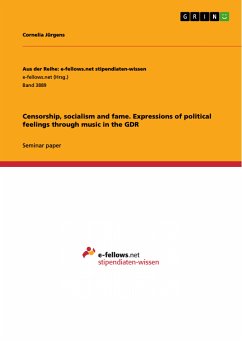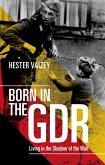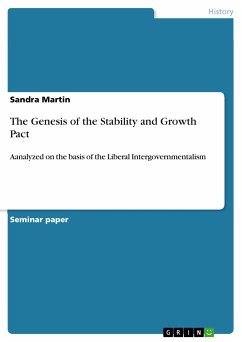Seminar paper from the year 2020 in the subject History Europe - Germany - Postwar Period, Cold War, grade: 8, VU University Amsterdam , language: English, abstract: "Some, I hear bitterly say / 'socialism - sure, why not / but what they're giving us / that's the wrong thing'". With lines like these, Wolf Biermann and many other musicians from Eastern Germany expressed their frustration with their state. Despite censorship and the danger of imprisonment, they expressed their political opinion and influenced those that listened to them. But to what extend did they dare to do so? And did they all share the same views? The Cold War is one of the most relevant and often-ven just within the counter-culture of eastern Germany, only one of many countries one could choose to focus on, there was a wide range of art and activism against the state, and even outside the big revolutions of 1953 and 1989, the people were as vocal as they were able to be. Not all of them shared the same opinion and if they did reject their state or its policies, they all did it in very different ways for different reasons. Especially the topic of music shows this very well. Music is one of the ways in which people express their emotions and thoughts the most clearly, and while states attempted to use musicians for their own purposes, especially those living in repressive regimes formed underground cultures and wrote music to counter them. This paper investigates two of such musicians and places them in the wider context of Cold War resistance.
Dieser Download kann aus rechtlichen Gründen nur mit Rechnungsadresse in A, B, BG, CY, CZ, D, DK, EW, E, FIN, F, GR, HR, H, IRL, I, LT, L, LR, M, NL, PL, P, R, S, SLO, SK ausgeliefert werden.









